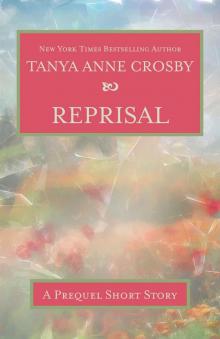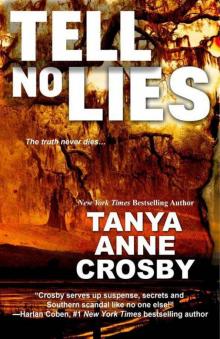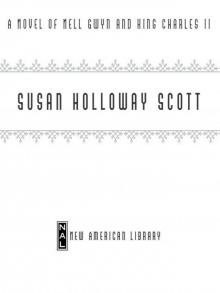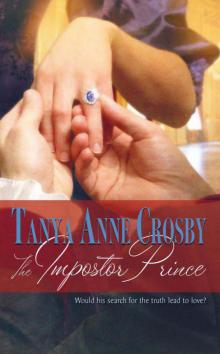- Home
- Tanya Anne Crosby
Reprisal Page 2
Reprisal Read online
Page 2
Gregg was a faithless bastard. She hoped she never saw him again. He could keep everything. Caía wanted nothing to remind her of their life together. He and his girlfriend could have each other, and Lindsey would soon discover that if you cheat with a cheater, you’re going to end up the loser. In the meantime, before she could move on with her life, she had to face him. She had to face the man who’d ripped her life out from under her like a dirty carpet.
Nick Kelly.
Anger surged at the thought of his name without her mouth even having formed the shape of the words. A muscle ticked in her jaw and her heartbeat kicked into overdrive.
Nick Kelly.
Murderer.
Killer of innocents.
People flowed past, unaware of the chaos raging inside of Caía.
Fueled by the rage that had sustained her through the past two years, Caía got up, resolved, grabbing her bags. She moved purposefully toward the terminal desk, only to lose her nerve again. She sat in the next available bench, her legs as soft as a bowl full of grits.
Right vs. Wrong.
It used to be so clear.
Only how could it be right that a thirteen-year-old’s life could so easily be snuffed? How was it right to lose everyone she cared about in the space of just a few months? How was it right that a husband could leave his wife at the lowest point in her existence? How, just how, could the man responsible for Jack’s death get to live without consequences?
No. There was only one thing to do: she must get up, right now, head to the airline desk, and show her passport. She would tell the agent her name and her destination, and she would see where it went. If the Universe decided she was justified, then she would get on the plane and fly to Jerez and face him, once and for all.
If, however, she was prevented from doing so by a simple typo, even after she’d taken every care to get things right, then she must see this as a clear message to stop.
Knees wobbly, Caía rose from her seat. She threw her handbag over her shoulder and seized her suitcase handles, unlocking them again. Straightening her posture, she infused herself with the spirit of righteousness and rolled her bags toward the terminal counter.
Once there, she waited patiently as the line dwindled until, finally, she was up next. Grabbing her suitcases, Caía dragged them toward the counter, intending to check her bags.
“Hello,” she said.
The woman behind the counter smiled, and Caía produced the passport, handing it over to the woman, her heart beating wildly.
“What an interesting name,” the woman remarked. “I’ve never seen it before.”
“It’s Polish,” Caía said. “Or, rather, I am polish, but I believe the name is Latin. It means to rejoice.” Something she had done so little of for the past few years.
“Interesting. And how do you pronounce it?”
“k-EYE-ah”
“k-EYE-ah,” the woman repeated. “So, you’re going to Spain? How nice.”
Caía was grateful it was early and the agent hadn’t yet been subjected to a horde of angry passengers, all with delayed flights.
“Yes, ma’am.”
She studied Caía’s passport, presumably checking its legitimacy.
So this was it.
Whatever happened now, Caía was going to live with it. If this was not meant to be, it was not meant to be. Her lips felt parched as she waited for the woman to check her records. She typed away at her keyboard, and Caía ignored the urge to speak up and explain. I sent everything in on time. I filled out the papers right. It was their mistake. Please, please, please let me fly.
Ambivalence was not Caía’s M.O., but at the moment she felt like seesaw, tipping back and forth between right and wrong. Life, she reminded herself, was not black and white. However, the one thing she knew beyond a shadow of doubt was that Nick Kelly was in the wrong for killing her son, and defending Jack felt innately right—as it always had from the day he was born.
She remembered when he was six, his second semester in first grade. After chasing him around the playground, a little girl ripped the hood from his jacket, and Caía had marched into his class the following morning, demanding to speak to Jack’s teacher.
“They were playing,” his teacher had said, with a bit of a sheepish smile. “I think April likes him.” And maybe that had settled Caía’s ire, but even then, she’d been prepared to take on a first-grader in defense of her kid. There was something of that chagrin in her now—that same embarrassing lack of objectivity, but she didn’t try to analyze it. Then, as now, she feared she wasn’t equipped to know the right thing to do, because if that teacher hadn’t been around to instill a sense of reason, Caía might have been tempted to go and pluck up that girl by her collar and march her straight to the principal’s office. It had been the teacher’s even temper and sense of fair play that had prompted her to take a deep breath and walk away with simple assurances that the teacher would remind the little girl that jackets were expensive, and it was well and good to want to chase a cute boy, but only so long as they were both having fun and kept their hands to themselves.
Suddenly, the woman behind the counter frowned. “Caía, I’m showing a discrepancy here...”
Caía frowned, not at all feigned.
“Your ticket is issued to Caía Nowakówna but your passport says Nowakewna.”
Caía grimaced. “Oh, no!”
“Yes, ma’am, look here.” She handed the passport back to Caía, and Caía pretended to stare at the document in surprise, her head feeling light, and her stomach turning over violently. “Oh, God, it does,” she agreed, looking dismayed.
“Do you have another form of ID?”
“Yes,” Caía said anxiously. She immediately reached into her purse for her driver’s license. Now, once again, she felt eyes on her, boring holes through her back.
She handed the driver’s license over to the woman. “I had it expedited,” she said, and then admitted truthfully, “I didn’t think to check closely. I can’t believe they made a mistake like that.”
“Believe it or not,” the woman said, smiling, handing the driver’s license back to Caía. “It happens all the time.”
“Really?”
“Sure.”
“What can be done?”
“You’ll have to get a new passport as soon as you can,” the woman said. “But for today, we’ll change the airline ticket to match your passport—with your permission.”
“Really?”
“Yes,” the woman said. “Like I said, it happens all the time. Just be sure to get the passport corrected as soon as you get back from Spain.”
Relief washed over her. “Yes, yes, of course. That would be fine. And don’t worry, I will,” Caía promised, returning the driver’s license to her purse.
“So instead of Caía Nowakówna,” the woman explained, just to be sure Caía understood, “you’re Caía Nowakewna for the duration of this trip.”
“Okay,” Caía said, still stunned.
“Also, it looks like we’ve overbooked this flight. Lucky you for checking in so early. Do you mind if we bump you to first class?”
Caía blinked again. “Really?”
The woman smiled and gave her a nod, and Caía shook her head. “No, not at all.”
“How many bags?”
“Two.”
“You have one free; the other will be $50. How would you like to pay?”
Dumbfounded by her sudden turn of luck, Caía rushed into her wallet to grab a credit card to hand it to the woman, who thereafter made a few more taps on her keyboard and stood quietly by a moment while printing Caía’s boarding passes. Finally, she handed the documents to Caía.
Caía was afraid to reach for the documents. “That’s it?”
The woman smiled wider. “That’s it. Just show them your passport at the ga
te, and have a great trip.”
“Thank you,” Caía said. “Thanks so much!” As she turned, the agent called out, “Next, please.”
Feeling a sense of surrealism, Caía walked away with the boarding passes in hand, and a fat purse on her shoulder. She made her way toward baggage check, feeling as though she had somehow gotten away with a crime—though surely they would stop her at security.
Only that was not the case. When it was Caía’s turn, she handed the agent her boarding pass and passport. He perused them both and then directed Caía into the pre-check line, where she wouldn’t be forced to remove her shoes.
Having worn a simple pair of leggings, no belt, no buckles on her boots, or a sports bra, she passed through the metal detector without so much as a beep and then, once she was through the metal detector, she reclaimed her shoulder bag and hurried toward her gate.
It shouldn’t be this easy.
While she waited for the boarding call, she half-expected authorities to show up to prevent her from boarding. But no. She boarded with the first-class passengers and found her seat ready and waiting and empty, except for a napkin, a small bottle of water, and a package of pretzels. Even before the last passenger had boarded, the flight attendant—a lovely brunette with sparkling gray eyes—asked for her drink order.
“Is it possible to get a Sangria?” Caía asked, removing her iPad and headphones from her travel bag and then resettling the bag beneath the seat in front of her.
“Yes, of course,” the attendant said before turning to the man seated beside her.
Caía turned on her iPad and stared at her screensaver—at the photo of her son, the one she’d taken of him the last time they’d gone out together, just the two of them. In the photo, Jack sat facing her, his smile infectious. This was how she wanted to remember him. Closing her eyes, she brought the iPad to her breast, and inhaled deeply . . . feeling . . . yes . . . justified.
Finally—after all this time—Nick Kelly was going to answer for what he’d done to her beautiful boy.Now I know what to do, Jack.
Don’t worry, I know exactly what to do.
This story continues in Redemption Song
Raised as an only child, Caia Paine once believed she had everything she would ever need to live a rich and contented life. The last thing she ever expected was that she would wake up one morning, despairing, and so full of loathing that even the sky is darkened by the potency of her anger. After her only son, Jack, is taken from her in a tragic accident, Caia finds herself obsessed with the man she holds responsible for Jack’s death, pursuing him all the way to Jerez, Spain. There she embarks upon a journey that will lead her to suspect her own moral boundaries. It is a dangerous game that will forever change Caia and make her question the nature of her paradise lost.
Redemption Song is a compact, potent work of fiction in which nothing is entirely what it seems and answers are elusive. Surprising, revealing, and telling, it is the work of a rare storyteller.
“Crosby’s second foray into women’s fiction (after The Girl Who Stayed, 2016) is a quick read with charm and quirk.”
– Booklist
“A woman searches for closure, meaning, and maybe revenge in Tanya Anne Crosby’s latest, Redemption Song. Delving deep into the core of a damaged soul, Crosby cleverly contrasts the warmth and harmony of a family not so different from the protagonist’s own. Masterful.”
– Pamela Morsi, USA Today bestselling author of Simple Jess
“Packed with raw, emotional power, Redemption Song is an insightful and moving exploration of one woman’s triumph over grief. When you come to the last chapter, you’ll feel breathless as you reach for the tissues. This is Tanya Anne Crosby at her very best and marks her as a strong new voice in women’s fiction.”
– Julianne MacLean, USA Today bestselling author
Here is an excerpt:
Jeréz, Spain, present day, 3:12 p.m.
There he was. Right on time. Walking down the street with that pretty little girl, wearing her lime-green dress and those bright red sneakers. It was impossible to miss those happy colors. And what was he wearing? Jeans and a faded blue T-shirt—all laid back and punchy as though he hadn’t a care in the world. When was the last time Caía had worn anything but black?
How was this possible? The girl was clinging to him, trusting him to keep her safe. But how could anyone trust that man? What about him was remotely trustworthy?
Like a Nazi, he was hiding here in this sunny little village in southern Spain. But, then again, wasn’t this appropriate? He, the escaped villain; Caía, the harbinger of justice . . . although what justice should entail, Caía didn’t yet know.
She focused her attention on the varicolored pair, attempting to ignore the swarming pigeons. Some were perched upon the crenellations of an ancient, ruined fortress next to the coffee shop. Some hopped about, pilfering droppings from customers at Rincon Escondido—a small sidewalk café nestled along the path Caía knew he would take. Over the past few weeks, she’d studied his schedule, knew exactly where he would go and at what time.
Oblivious to the potential nuclear fallout of Caía’s wrath, old men dressed in black defied modernity, with bolero hats tipped slightly forward, shielding wrinkled old eyes from a ruthless afternoon sun. All the while sucking on unfiltered cigarettes, they baked themselves from the inside and out, putting out lung fires with baby cervezas.
Seated near the pigeon-infested fountain, a busker strummed his guitar beneath the shade of an orange tree. He stopped now and again to pluck up a cigarette he’d left burning at the edge of the fountain and slip the butt between his lips, sucking hard, before putting it down again to return to his guitar. He looked pleased with himself as he exhaled, putting nearly as much attention into his smoke work as he did his music.
All the while, black-clad servers with moist brows bustled to and fro, sliding cafélitos and small plates onto nearby tables. But, hey, at least no one was ogling their phones.
Distracted, or more like pretending at distraction, Caía tore a fleshy bite from the bollo in her bread basket. Crumbling it between her fingertips, she scattered the spongy bits alongside her table, watching in her peripheral as a fat, greedy pigeon rushed forward for a feast. But she never took her eyes off the man walking down the street.
Who was the girl?
Smiling, the child skipped along beside him, and seeing them together made Caía’s face burn hotter than the glowing tip of the busker’s cigarette.
Fury welled up inside her, so utterly potent in its incarnation that she had to suck in a breath. Tears pricked at her eyes. Anger stemmed the flow.
He shouldn’t get to walk any child across any street, most certainly not that child. He shouldn’t get to hold her little hand—or be the recipient of her sweet, innocent glances upward.
God help her, the sight of that child’s innocent smile threatened to empty Caía’s heart of all its animosity . . . except . . . she couldn’t let it go.
No. She wouldn’t.
Jack would never again get to look at anyone that way.
Jack. Jack. Jack. Jack.
She repeated the name like a litany in her head, as though she were in danger of forgetting it altogether. Right here and now, she longed to shout out his name—test the sound upon her lips. Jack! she wanted to scream. Would he turn around? And did he remember her son’s name?
My sweet, sweet Jack, Caía lamented silently.
How long had it been since she’d spoken his name out loud? Too, too long. And maybe she never would again. That possibility burned like acid in her gut. Because now who was left to hear what she had to say about Jack? Two short years, and people already turned away whenever she brought him up, casting sidelong glances at her that said, “Caía, oh, Caía, aren’t you over him yet?”
No.
I am not.
I will never b
e over you, Jack.
But maybe that’s not what they were thinking at all. Maybe it was really their own discomfort over not being able to change the inalterable truth: Everyone dies. Even babies with their whole lives left to be lived. Even that little girl. Even Jack.
Or perhaps it was more like this: With kids of their own—especially ones who were struggling to maintain a grip on innocence—maybe it was a bit like peeping into Snow White’s mirror? “Mirror, mirror on the wall,” she could hear them all say. “Who’s the saddest, most pathetic parent of all?”
“Why it’s still Caía Paine,” the mirror would reply. “But beware . . .”
At this point, both of Caía’s parents were gone. Gone—a euphemism for dead. But dead was dead. And yet, there must be a bright side to being six feet under. Neither of her parents would ever get to witness a world without Jack. Bleak, empty—so at odds with the bright blue day, with all the twittering birds. And all that laughter.
The lady at the table behind Caía giggled, and the easy chatter that followed gave her a stab of envy—an ugly sensation that cast shadows over the powder-blue day. Like a dirty chimney, the smoldering exhaust of her anger obscured the sun, spreading despair and lowering clouds until they pressed firmly against the pate of her head. Speaking too softly for Caía to hear actual words, their tone nevertheless said it all. They were lovers, flirtatious and familiar. Another stab of envy—and anger—accosted her. She was a great big ball of fury—a hot mass, burning like the sun.
No, her anger was more like a tsunami, threatening to devastate everything within its path. Gathering far at sea, it nevertheless gained momentum, like a cyclone, powering toward an indeterminate shore. When and where—and how—it would descend, Caía had no way of knowing. All she knew right now was that every day that passed without relief only made the impending disaster more terrifying. Because there he was. That man. Walking that sweet kid across a busy street, without a care in the world. So damned full of himself that he was oblivious to everyone around him. Certainly, he had never noticed Caía—not once.

 Lord of Shadows (Daughters of Avalon Book 5)
Lord of Shadows (Daughters of Avalon Book 5) To Love a Lord: A Victorian Romance Collection
To Love a Lord: A Victorian Romance Collection The Daughters of Avalon Collection: Books 1 & 2
The Daughters of Avalon Collection: Books 1 & 2 The Impostors: Complete Collection
The Impostors: Complete Collection The Holly & the Ivy (Daughters of Avalon Book 2)
The Holly & the Ivy (Daughters of Avalon Book 2) A Winter’s Rose
A Winter’s Rose Fire Song (Daughters of Avalon Book 4)
Fire Song (Daughters of Avalon Book 4) Elizabet
Elizabet Kissed; Christian
Kissed; Christian Once Upon a Knight
Once Upon a Knight Viking: Legends of the North: A Limited Edition Boxed Set
Viking: Legends of the North: A Limited Edition Boxed Set Five Unforgettable Knights (5 Medieval Romance Novels)
Five Unforgettable Knights (5 Medieval Romance Novels) Meghan: A Sweet Scottish Medieval Romance
Meghan: A Sweet Scottish Medieval Romance Reprisal: A Prequel Short Story to REDEMPTION SONG
Reprisal: A Prequel Short Story to REDEMPTION SONG Highland Song
Highland Song The Summer Star: One Legend, Three Enchanting Novellas (Legends of Scotland Book 2)
The Summer Star: One Legend, Three Enchanting Novellas (Legends of Scotland Book 2) Once Upon a Kiss
Once Upon a Kiss MacKinnons' Hope: A Highland Christmas Carol
MacKinnons' Hope: A Highland Christmas Carol The MacKinnon's Bride
The MacKinnon's Bride Highland Brides 04 - Lion Heart
Highland Brides 04 - Lion Heart A Perfectly Scandalous Proposal (Redeemable Rogues Book 6)
A Perfectly Scandalous Proposal (Redeemable Rogues Book 6) Reprisal
Reprisal Maiden from the Mist (Guardians of the Stone Book 4)
Maiden from the Mist (Guardians of the Stone Book 4) Tell No Lies
Tell No Lies The King's Favorite
The King's Favorite Meghan: A Sweet Scottish Medieval Romance (Sweet Scottish Brides Book 2)
Meghan: A Sweet Scottish Medieval Romance (Sweet Scottish Brides Book 2) The Impostor Prince
The Impostor Prince Happily Ever After
Happily Ever After Sophie's Heart: Sweet Historical Romances
Sophie's Heart: Sweet Historical Romances Viking's Prize
Viking's Prize Page
Page Angel of Fire
Angel of Fire Once Upon A Highland Legend
Once Upon A Highland Legend Highland Brides 03 - On Bended Knee
Highland Brides 03 - On Bended Knee Sagebrush Bride
Sagebrush Bride Lyon's Gift
Lyon's Gift Lady's Man
Lady's Man The King's Favorite (Daughters of Avalon Book 1)
The King's Favorite (Daughters of Avalon Book 1) Highland Storm
Highland Storm Redemption Song
Redemption Song Three Redeemable Rogues
Three Redeemable Rogues